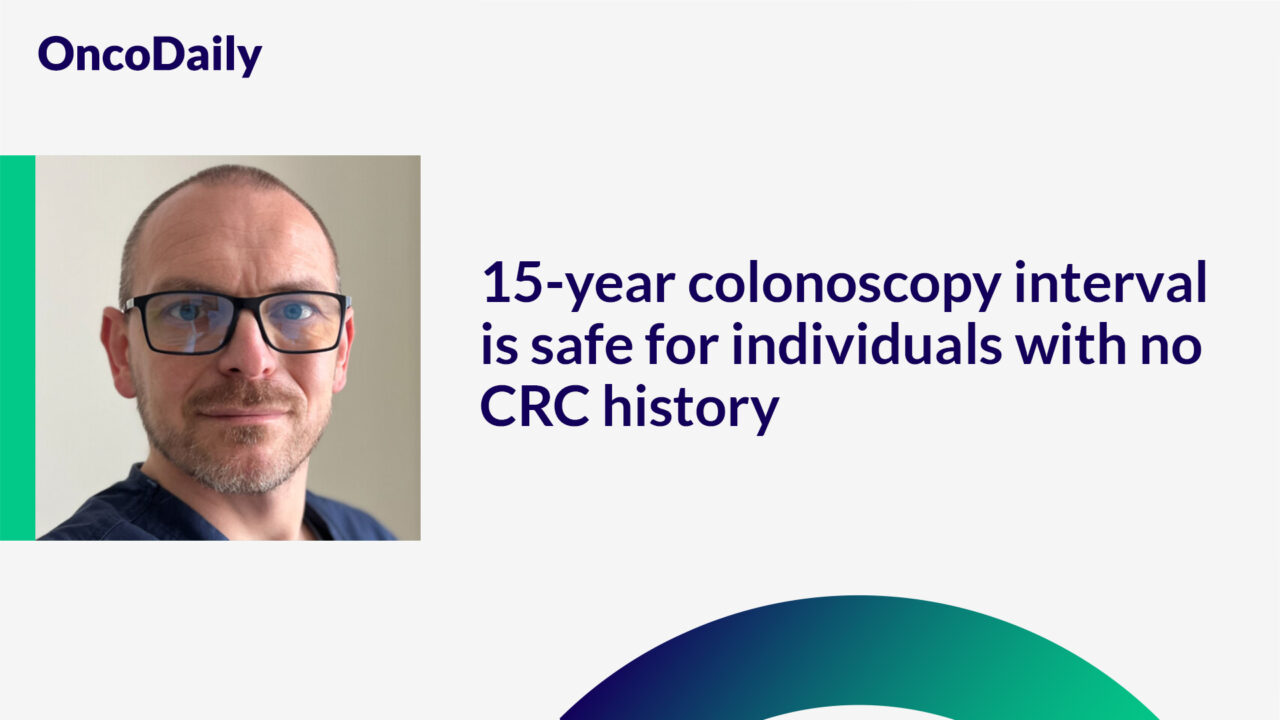
Piotr Wysocki: 15-year colonoscopy interval is safe for individuals with no CRC history
Piotr Wysocki recently posted on LinkedIn:
“A routine approach for individuals who had no negative findings (colorectal polyp, adenoma, carcinoma in situ, or colorectal cancer) on their first colonoscopy is to perform the subsequent endoscopic assessments in 10-year intervals. However, a recent analysis of the Swedish nationwide register revealed that the intervals can be prolonged to 15 years.
The study published in JAMA Oncology by Liang Q. et al. analyzed data from 110 074 individuals who underwent their first colonoscopy at age 45 to 69 years and from 1 981 332 case-matched individuals who either did not have a colonoscopy or underwent colonoscopy that resulted in a CRC diagnosis.
After a first colonoscopy with findings negative for CRC (colorectal polyp, adenoma, carcinoma in situ, or colorectal cancer), the risks of CRC and CRC-specific death in the colonoscopy group were significantly lower than those in their matched controls for 15 years.
The 10-year cumulative risk of CRC in year 15 in the screened group was 72% that of the 10-year cumulative risk of CRC in the control group. Extending the colonoscopy screening interval from 10 to 15 years in individuals with a first colonoscopy with findings negative for CRC could miss the early detection of only 2 CRC cases and the prevention of 1 CRC-specific death per 1000 individuals while potentially avoiding 1000 colonoscopies.
This study demonstrates that individuals without a family history of CRC who underwent a colonoscopy negative for CRC may safely undergo further endoscopic screening in 15-year intervals.”

Authors: Qunfeng Liang, Trasias Mukama, Kristina Sundquist, Jan Sundquist, Hermann Brenner, Elham Kharazmi, Mahdi Fallah
Source: Piotr Wysocki/LinkedIn
Piotr Wysocki leads the Clinical Oncology Department at University Hospital and the Faculty of Oncology at Jagiellonian University-Medical College in Krakow, Poland. As an advisor to the Polish Ministry of Health, he shapes the national cancer strategy.
His clinical expertise spans the systemic treatment of breast, gynecologic, and genitourinary cancers, with a focus on developing innovative metronomic chemotherapy-based therapies for advanced cancer patients who have undergone prior treatment.
Read other posts by Piotr Wysocki published on OncoDaily.
